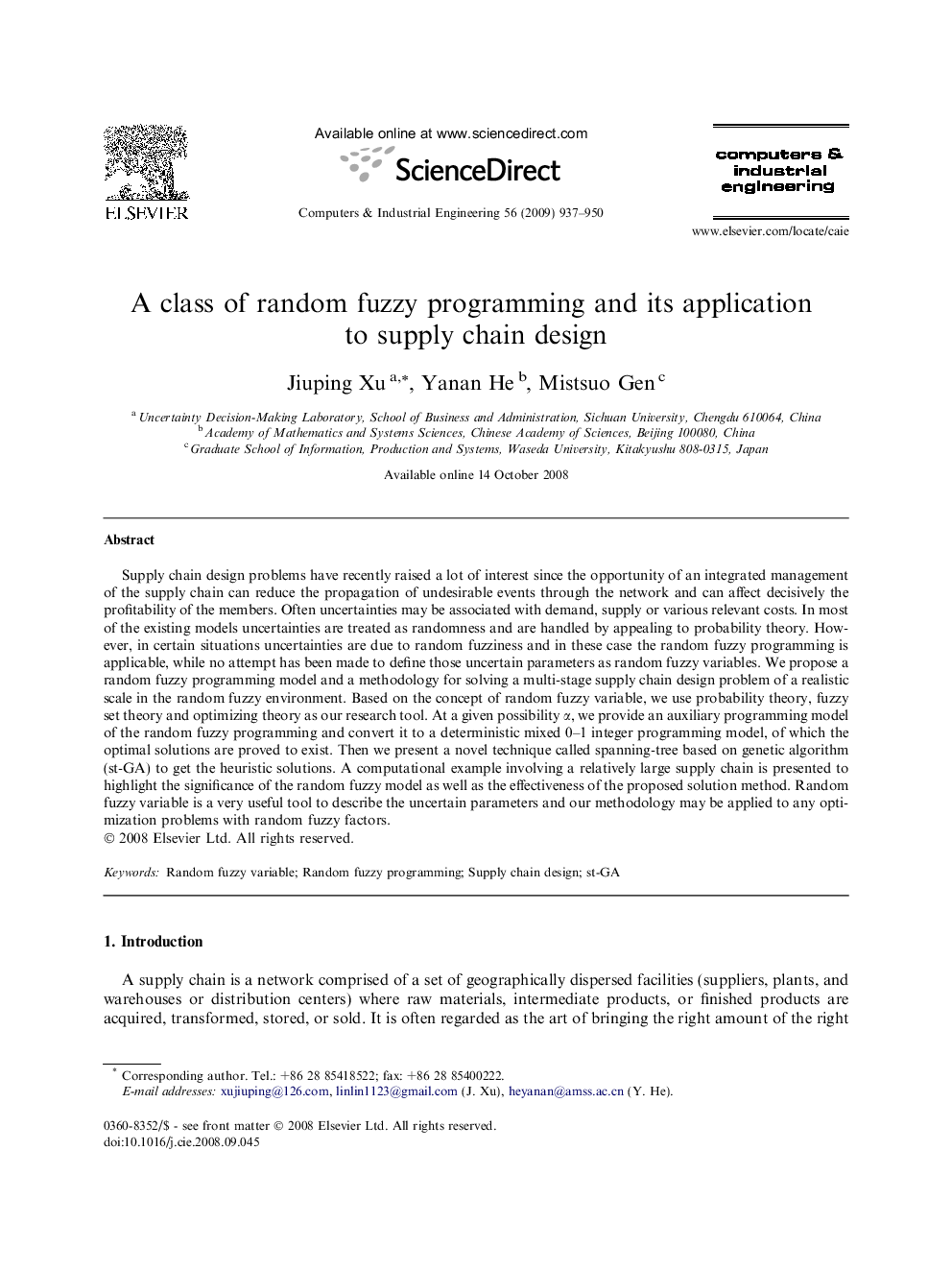| کد مقاله | کد نشریه | سال انتشار | مقاله انگلیسی | نسخه تمام متن |
|---|---|---|---|---|
| 1135137 | 956090 | 2009 | 14 صفحه PDF | دانلود رایگان |

Supply chain design problems have recently raised a lot of interest since the opportunity of an integrated management of the supply chain can reduce the propagation of undesirable events through the network and can affect decisively the profitability of the members. Often uncertainties may be associated with demand, supply or various relevant costs. In most of the existing models uncertainties are treated as randomness and are handled by appealing to probability theory. However, in certain situations uncertainties are due to random fuzziness and in these case the random fuzzy programming is applicable, while no attempt has been made to define those uncertain parameters as random fuzzy variables. We propose a random fuzzy programming model and a methodology for solving a multi-stage supply chain design problem of a realistic scale in the random fuzzy environment. Based on the concept of random fuzzy variable, we use probability theory, fuzzy set theory and optimizing theory as our research tool. At a given possibility αα, we provide an auxiliary programming model of the random fuzzy programming and convert it to a deterministic mixed 0–1 integer programming model, of which the optimal solutions are proved to exist. Then we present a novel technique called spanning-tree based on genetic algorithm (st-GA) to get the heuristic solutions. A computational example involving a relatively large supply chain is presented to highlight the significance of the random fuzzy model as well as the effectiveness of the proposed solution method. Random fuzzy variable is a very useful tool to describe the uncertain parameters and our methodology may be applied to any optimization problems with random fuzzy factors.
Journal: Computers & Industrial Engineering - Volume 56, Issue 3, April 2009, Pages 937–950